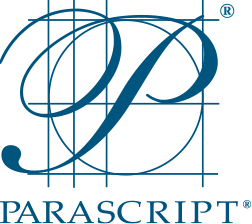The healthcare industry is under constant pressure to improve efficiency and cut costs. One area that has been receiving a lot of attention lately is revenue cycle management (RCM). RCM is the process of managing the financial aspects of patient care, including insurance billing and payments. The goal of RCM is to optimize the revenue cycle so that providers are paid promptly and accurately for the services they provide.
When it comes to processing provider receivables, the challenge is enormous. The typical hospital has thousands of patient encounters each day, and each encounter generates a complex paper trail of medical records, insurance forms, and billing documents. The RCM process must be designed to efficiently handle this enormous volume of data while ensuring that all claims are paid correctly and in a timely manner. To further complicate matters, the RCM process is constantly changing as insurance companies revise their payment policies and government regulations are updated.
In the past, healthcare providers relied on manual processes to handle these billing and payment challenges with human involvement costing significant amounts of time and money. However, as artificial intelligence begins to find its way into the healthcare industry, revenue cycle management processes are becoming increasingly more efficient. Software companies are beginning to develop AI-powered RCM solutions that can automate many of the tasks that are currently being done manually. These solutions have the potential to significantly reduce the amount of time and money that healthcare providers spend on billing and payments, freeing up resources that can be used to improve patient care.
One of the biggest challenges in RCM is reconciling and verifying payments and benefits documents. These documents are often complex and variable, which makes the reconciliation process time-consuming and prone to error. AI-powered RCM solutions can help automate this process by extracting the data from these documents and comparing it to the data in the provider’s billing system. This ensures that payments are accurate and that providers are paid promptly for the services they provide. Automation systems can process more documents at a higher level of accuracy than a human can, making it easier and more affordable than ever to accurately reconcile payments and benefits documents. With the high-volume of documents and industry-specific demand, it’s no wonder why hundreds of software companies are developing AI-powered RCM solutions for hospitals and other healthcare providers around the world.
As technology continues to develop, the likelihood that all RCM processes will be fully automated increases. This would free up a significant amount of time and resources for healthcare providers, allowing providers to focus on their core business of providing healthcare, rather than on the administrative tasks associated with billing and payments. As more and more healthcare institutions make investments in AI-powered RCM solutions, the industry is expected to grow exponentially, and new innovations will push the boundaries of what is possible. Healthcare providers who haven’t considered automation in the past may want to start paying close attention to RCM and intelligent automation in the coming years.
Parascript is an established innovator in healthcare automation software with pre-built solutions for common document-based processes. For more information contact the Parascript team today.
